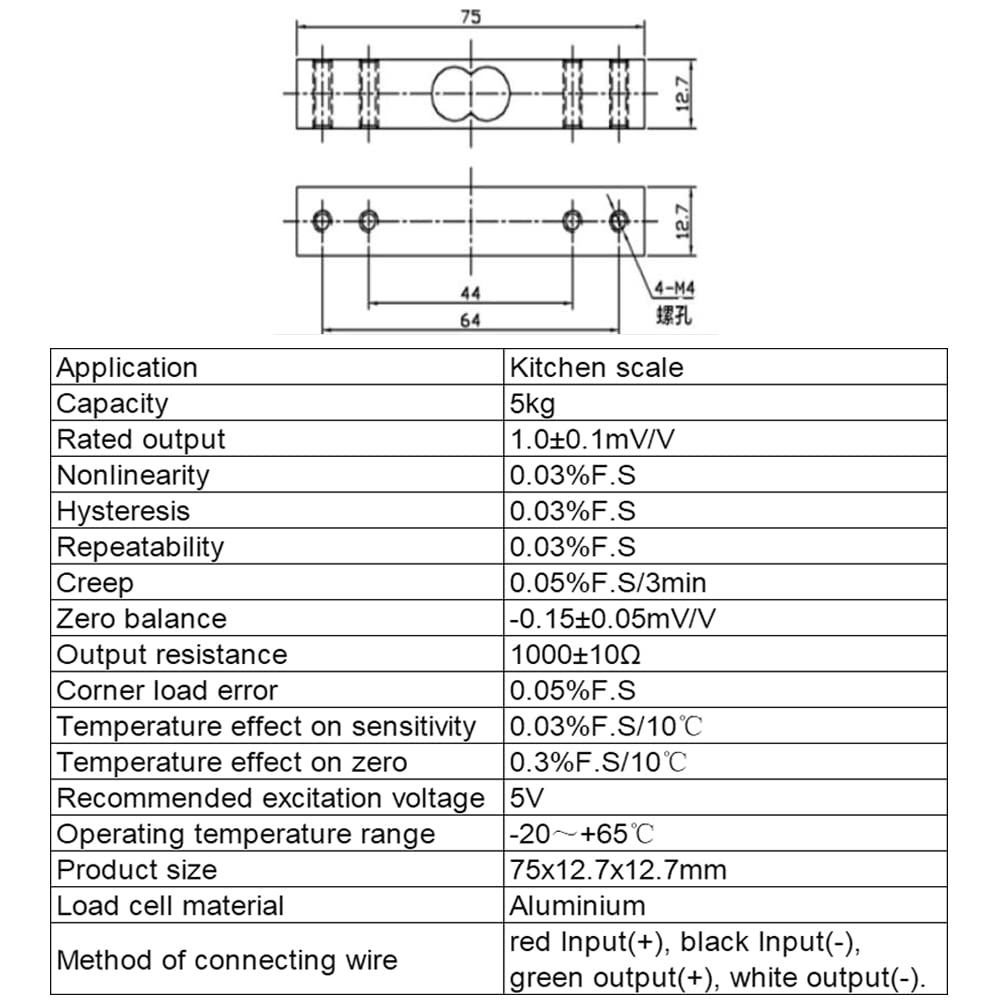Servicios al cliente
Sobre nosotros
Copyright © 2025 Desertcart Holdings Limited
Desert Online General Trading LLC
Dubai, United Arab Emirates









🔧 Build Your Own Precision Scale – Because DIY is the New Black!
This 2 Sets Digital Load Cell Weight Sensor with HX711 ADC Module is designed for DIY enthusiasts looking to create a portable electronic kitchen scale. It supports a maximum load of 5kg and features a user-friendly setup with color-coded leads. The HX711 module offers high precision with a 24-bit A/D converter and selectable gain options, making it compatible with popular platforms like Arduino and Raspberry Pi.
Trustpilot
Hace 2 semanas
Hace 1 mes
Hace 3 semanas
Hace 1 semana